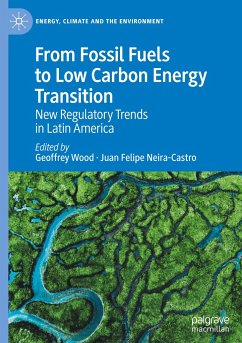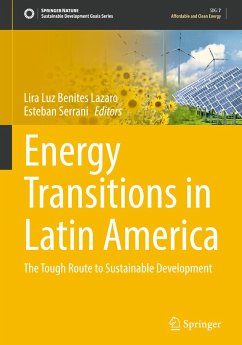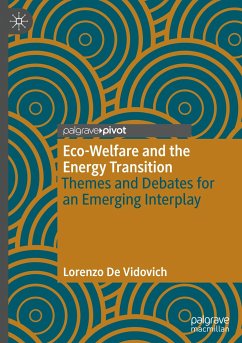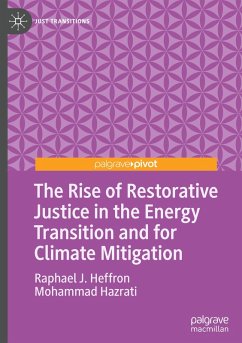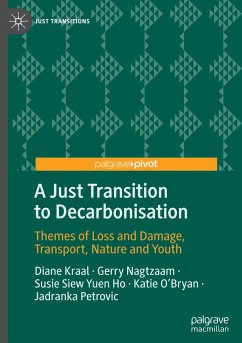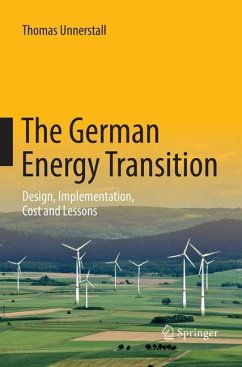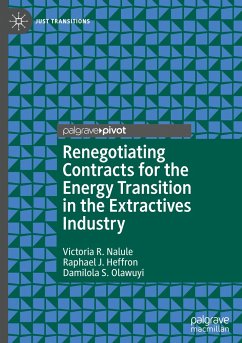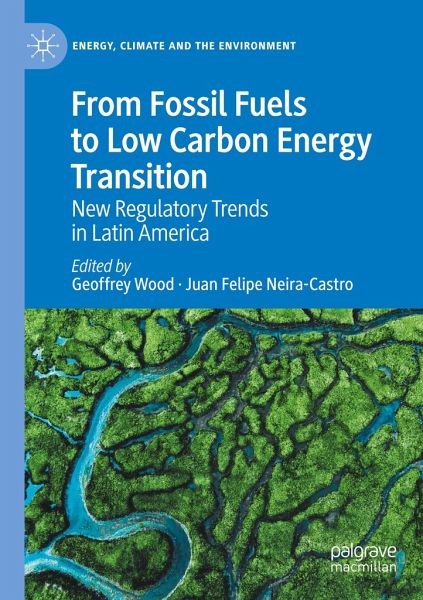
From Fossil Fuels to Low Carbon Energy Transition
New Regulatory Trends in Latin America
Herausgegeben: Wood, Geoffrey; Neira-Castro, Juan Felipe
Versandkostenfrei!
Versandfertig in 6-10 Tagen
83,99 €
inkl. MwSt.

PAYBACK Punkte
42 °P sammeln!
Focusing on five key themes - hydrocarbons, electricity, mining, social license to operate, and arbitration/dispute resolution- via in-depth country and regional case studies, this book seeks to capture the contrasting and sometimes conflicting trends in energy governance in Latin America as it wrestles with a dependence on fossil fuels whilst shifting toward a low carbon future.Energy transition continues to sit at the centre of the Latin American policy debate as the world continues to push for carbon neutrality by 2050. Latin America is undergoing a renewable energy transition, with substan...
Focusing on five key themes - hydrocarbons, electricity, mining, social license to operate, and arbitration/dispute resolution- via in-depth country and regional case studies, this book seeks to capture the contrasting and sometimes conflicting trends in energy governance in Latin America as it wrestles with a dependence on fossil fuels whilst shifting toward a low carbon future.
Energy transition continues to sit at the centre of the Latin American policy debate as the world continues to push for carbon neutrality by 2050. Latin America is undergoing a renewable energy transition, with substantial reserves (solar, wind, hydro, geothermal) and many countries in the region setting ambitious renewable energy policies, laws, and regulations to address climate change. However, recent initiatives to promote renewables must be placed in context. Historically, Latin America has developed and improved its economic and social standards due primarily to an economy based on the extractive industries and fossil fuels. This places renewables at the crossroads of multiple drivers, as the region seek to ensure security of supply, attract investment, and facilitate a low carbon energy transition.
Energy transition continues to sit at the centre of the Latin American policy debate as the world continues to push for carbon neutrality by 2050. Latin America is undergoing a renewable energy transition, with substantial reserves (solar, wind, hydro, geothermal) and many countries in the region setting ambitious renewable energy policies, laws, and regulations to address climate change. However, recent initiatives to promote renewables must be placed in context. Historically, Latin America has developed and improved its economic and social standards due primarily to an economy based on the extractive industries and fossil fuels. This places renewables at the crossroads of multiple drivers, as the region seek to ensure security of supply, attract investment, and facilitate a low carbon energy transition.





